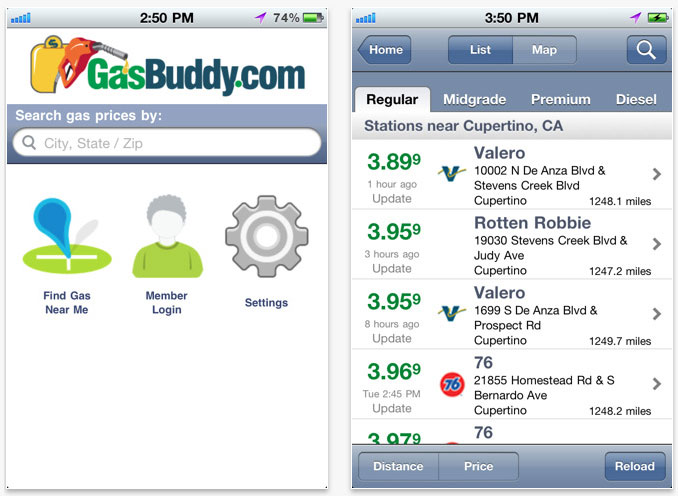J. Paul Getty said, “My formula for success? – Rise Early, Work Hard, Strike Oil.” With productivity improvements through APIs now available,

Mr. Getty might have been able to sleep later and work more efficiently.
The Chemical and Petroleum industry benefits through APIs providing access to analytic data via mobile platforms, integration of the supply chain, gaining insight for exploration and production, marketing and raw material delivery, and processing (Refining) the raw materials into finished products for subsequent delivery to market. In addition, APIs provide visibility to aid in security and safety.

So, let’s “drill down” on how APIs are used in the Chemical and Petroleum industry. Once again I’ll use the structure I previously introduced (
here).
Mobile (Internal) App Development – In their paper,
Grasping the Mobile Opportunity, Thomas Glover and Giles Norman outline a large number of Mobile use cases for the Oil and Gas industry. I’ll pick out a few use cases from this source and others to highlight where APIs can be of particular benefit:
- Basic APIs: reporting on field instrumentation. Increase skills through better real time information and training. Eliminate paper based processes with real time information.
- Custom APIs: Streamline processes through field level input and automation. Provide mobile tools for maintenance to reduce shut down time. Visibility of operational assets based on role and task. Access information on lifecycle of assets. Enhance collaboration between teams. Enhance visibility into process performance, reliability, yields and margins. Support safety, audit, and compliance with real time information. Support employee assessment.
- Mobile advantages include using GPS coordinates and NFC. GPS can be combined with information to assist with issues in production or dispatching service personnel supporting allocation of resources based on location, skill and needs. GPS and NFC can be used to determine when designated co-workers have moved beyond a safe distance.
What APIs are available today in Chemicals and Petroleum? Here are just a few samples of existing public APIs:
- OPIS - The Oil Price Information Service (OPIS) is the world’s most comprehensive source for petroleum pricing and news information.
- Market Intelligence Network - is a geospatial tool that displays and analyzes IHS (Information Handling Services) vessel movement data. It can track global vessel positions live and assess voyage destination and port calling data. This enables users to visualize the flow of oil products, coal, LPG (Liquefied Petroleum Gas), chemicals, methanol, and LNG (Liquefied Natural Gas) between regions and ports.
- IHS Energy Editorial - provides information about markets for petroleum and other energy sources. It delivers news and analysis from the provider's industry experts covering activities in oil and gas, as well as electrical power generation and renewable energy and water supply.
- EarthChem - provides a platform for data sharing and queries serving researchers in geology and related sciences. It focuses especially on data related to chemistry, chronology, and petroleum exploration and production.
- Argus Fundalytics - provides data indicating supply and demand conditions and resulting price projections in world energy markets, including crude oil, refined petroleum, natural gas, and other resources. It also provides estimates of transportation capacity and rates of usage, which affect delivery of energy products to market.
Besides creating Mobile Apps for their customers, there are many other areas where APIs can provide value for Chemical and Petroleum companies.
Partnering – Whether a company is integrated end to end or represents a portion of the supply chain the need to communicate across partnerships

or lines of business can be facilitated through APIs. APIs provide access to the trusted source for asset information enabling collaboration across functional areas or with external partners to allow for automation, regulatory reporting, process integration and incident management.
Public APIs – Much of the information about the Chemical and Petroleum industry is publicly available. Tracking oil prices and its transportation are some of the examples I referenced earlier in existing public APIs. In addition, governments require reporting on periodic basis which could be supplied through APIs.

From a business perspective, companies make typical information available about the products and services they offer. To consumers, public APIs are used to find the nearest gas station, compare prices in an area, or manage branded credit cards. B2B scenarios for airlines, marine, or other business consumers of petroleum include accessing APIs to determine prices and implement supply chain integration.
 Social
Social – Okay, so I had to stretch to pull in a Beverly Hillbillies reference (and it is probably so old that most of you have no clue why it is even related to this topic). But, cute references were probably not required. Social interaction on the Petroleum industry is a very combustible topic. I’ll not try to solve the issues here, but APIs to help understand what is being said and deliver company perspectives are critical use cases for APIs in the Chemical and Petroleum industry.
Devices – The Chemical and Petroleum industry is one of the primary industries adopting IoT technologies to support their product production and distribution. APIs are

used to gain visibility into manufacturing operations and to maximize employee, asset and facility performance. KPIs can be monitored and alerts raised automatically based on device sensors and monitors providing information through APIs.
Device APIs are also used to ensure safety of people and the environment by monitoring equipment, people, and product transportation. APIs can report location and movement to ensure security, help provide information to handle incidents, and try to prevent failures and incidents before they occur.
Data – Accessing disparate data sources or simplifying access to analytics allows companies to improve enterprise decision making and improve profitability. Such data access also helps reduce safety issues and potential environmental impact issues. Companies can also monitor trends and key performance indicators to help improve business outcomes.

Is it a coincidence that the American Petroleum Institute’s acronym is API? I think not! The American Petroleum Institute has stated, “Technology has played a major role in the development of the U.S. oil and gas industry — from where it searches for oil and natural gas to what and how much it is able to produce — and will continue to do so for the foreseeable future.” Given the ability of Web APIs to help enable easy access to technology, Web APIs are a core technology as the industry moves forward.
Remember that to achieve success you should always put controls around the APIs so that you know who uses the APIs and how much and can map this to the results. With this visibility, you can use the analytics to determine which techniques are working and which are not.
Connect with me through comments here or via twitter
@Arglick to continue the discussion. You can also
read my earlier blogs.